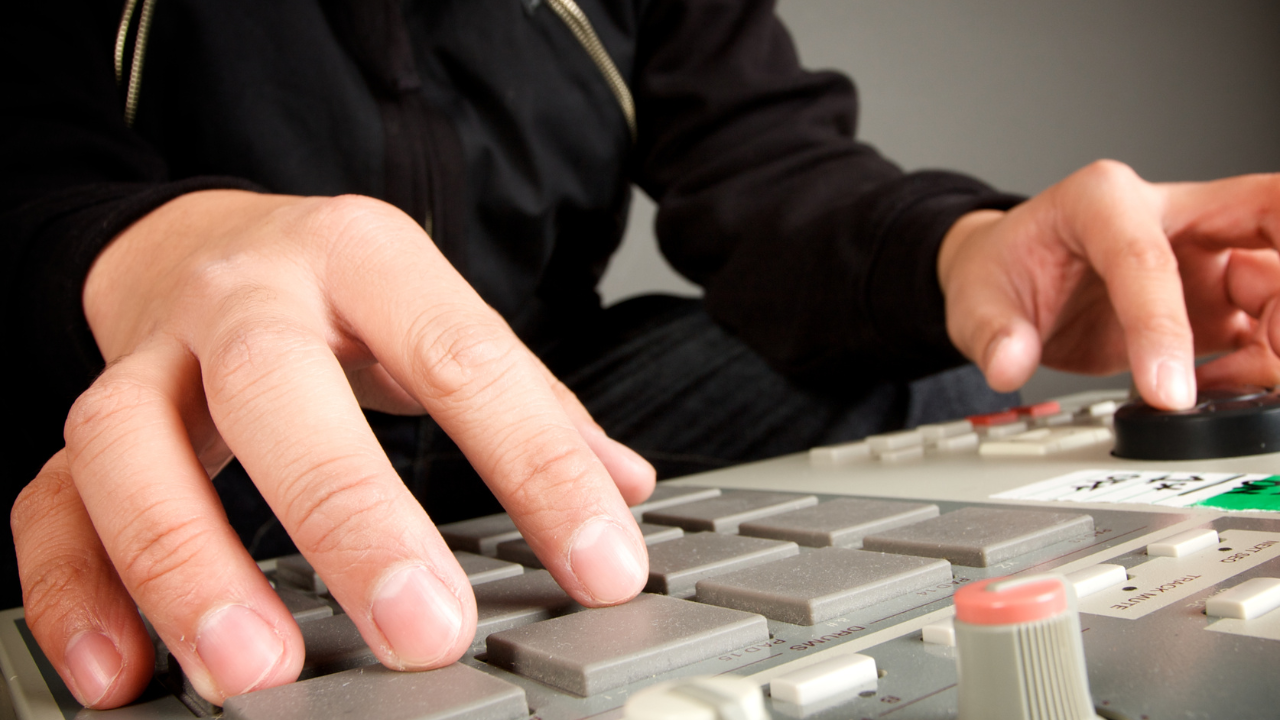Intro to Music Production for Beatmakers: Songs vs Beats

Music production can seem like a long road to travel down for beginners. There are so many different aspects involved from songwriting and arrangement to recording, editing and mixing the sounds, that it’s easy to feel overwhelmed by all of the skills involved and the options available for today’s producers. However, with the right knowledge and dedication, producing your own music in this field is achievable by anyone.
Music production has become such an important skill in today’s electronic music landscape as producers have to tailor their sound to specific genres and labels. It allows you to create music that fits the needs of various artists who may have different expectations of what they want out of a song. The market for independent artists is saturated with releases that are forgettable, if not commercially unsuccessful. The amount of new producers has gone up exponentially over the past few years as more people seek ways to stand out from their peers and create something unique. With all of this in mind, it’s important for aspiring beatmakers to understand some fundamental concepts before diving headfirst into the world of electronic music production.
This article will go over everything from why you should start making beats to how you can get started in this field without breaking the bank or constantly spending money on new equipment or software upgrades as you progress through it.

Download my FREE PDF Guide: 111 confusing Music Production Terms
What does a Beatmaker do?
Beatmakers provide the song structure, instrumentation and sound of the beat. A beatmaker can be someone who makes their own beats and sells them to artists and rappers, or they can be the artist themselves. The term beatmaker comes from the rhythm that a drum machine creates, where a pattern of hits is repeated over and over again in a loop providing the rhythm section (typically the drums and bass) as the rhythmic and melodic foundation for a song. A chord progression helps to provide motion for the song structure sections of the beat consisting of intro, outro, verse and chorus parts. Typically the verses are the rap or story part and the chorus contains the repeating hook of the song.
As a beatmaker, one of the most important aspects of your music productions will be the quality of your beats. In order to produce high-quality beats, you will need to eventually invest in some quality music production equipment. This equipment will allow you to create professional-sounding beats that will impress your listeners. Additionally, you will need to put in the time and effort to learn how to use your equipment properly in order to get the most out of it. With quality equipment and a bit of practice, you will be able to produce amazing beats that will make your music stand out from the rest.
What does a Music Producer do?
Music producers are people who take a song idea and create a finished song, from start to finish. This includes everything from songwriting to recording, mixing and mastering. Sometimes they do the technical work themselves and other times they hire engineers to do it. The song usually dictates the direction the production will go including the arrangement and instrumentation.
A music producer can be an individual or they can work in a team. The most important qualities of a producer are that they have the ability to hear and understand sound through their own intuition to create music that has meaning and marketability relevant to the style and genre.

Download my 111 Confusing Music Production Terms Translated PDF
Music Production Hardware
Having the right type of hardware is one of the first steps to producing your own beats. Some of the most important aspects to consider when purchasing equipment are the quality, dynamics and sensitivity of your microphone, choosing the best quality audio interface, monitor speakers, and headphones for your needs. The right kind of microphone will allow you to produce sounds that are crisp with a lot of detail. The sensitivity of your microphone also matters as it determines how much noise is picked up by your mic when in use. High-quality audio interfaces will allow for better quality audio recording and playback.
Music Production Software
Music production software is potentially a beatmaker's most important tool. It allows you to write, record, edit and mix the beats. Ableton Live, FL Studio, Pro Tools, Cubase, Reaper and Logic are all types of DAWs used by beat makers and producers. There are also many cheap or free alternatives like Audacity and GarageBand which offer similar functionality but require less technical knowledge and often come with limited features than their paid counterparts. If you're looking for an easy way to choose and purchase your first software package that offers good value for money, I would recommend starting with any one of these three: Ableton Live, FL Studio, or Pro Tools. Pro Tools has a steeper learning curve for beginners and requires an iLok.

🔥🔥🔥 Check out Ableton's new iOS app called Note.
Beats vs Songs
When we think about making beats, the first thing that comes to mind is probably hip hop or trap songs. This is because beats and basslines are often what define a song the most in those genres. When we think of songs we tend to think of pop songs with more focus on the melody and singing. Both beats and songs are made out of melody, rhythm and lyrics. A beat can be created by programming some instruments into some sort of pattern with a sequencer while a song typically starts out as a melody or chord progression played on piano or guitar.
Conclusion: Making beats is one of the best ways to learn how to create music in general. It’s a skill that will help you gain more confidence and give you insights into creative production techniques that will help improve your track-making and songwriting abilities. With the increasing demand for original music over popular samples and collaborations with other artists, producing beats for yourself at home may be the best way for you to stay afloat as an independent artist in this industry. Not only can you create your own work from scratch but you can also produce remixes on top of existing tracks and use them to put yourself out there as an expert producer who knows how to take someone else’s song and make it better than the original version.

Futch - Music Production Coach, Ableton Certified Trainer
#ableton #note #live #beatmaker #songwriter #producer
24 week live online classes and on-demand video training:
• Music Production Fundamentals • Writing Exciting Songs • Designing Your Artistic Vision
#musicproduction #musicproductionterms #beatmaking #beats #beatmaker #808 #trap #hiphop





